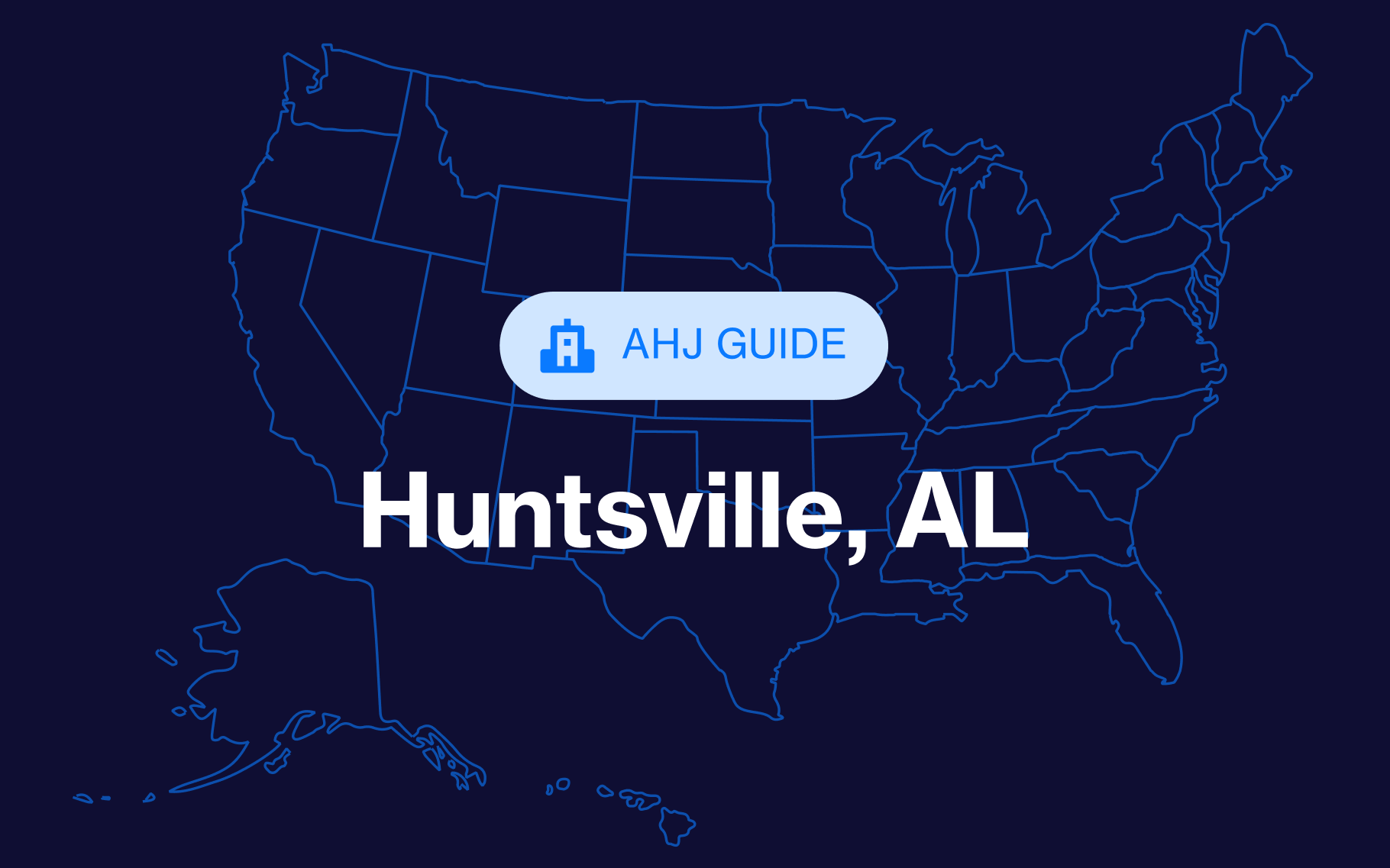Alabama is growing fast. New subdivisions, commercial developments, and home upgrades are everywhere. But growth brings complexity — each city and county handles permitting a little differently.
To get your work started without surprises, you need a clear picture of what local and state rules will expect from you.
Below, we walk through who issues permits in Alabama, when you need one, what you have to submit, what it’ll cost, and how to get through the process efficiently.
Who issues building permits in Alabama?
There is no single statewide permit issuer in Alabama.
Instead:
- Most counties and cities issue building permits through their local building departments.
- Larger cities like Birmingham and Huntsville manage permitting, trade permits, flood-development permits, etc., through their municipal building divisions
- Counties like Baldwin have a Building Inspection Department that handles permits and inspections for unincorporated areas and smaller municipalities.
Even though local governments issue permits, state agencies still play a role. For example, Alabama’s Division of Construction Management maintains the State Building Code that local jurisdictions must at least meet.
When do you need a building permit in Alabama?
Most substantial construction, structural change, or system upgrades will require a permit.
Examples include:
- New residential or commercial construction
- Additions, major remodels, or structural alterations (e.g., changing roofs, load-bearing walls)
- Electrical, plumbing, mechanical, HVAC work
- Decks, porches, accessory buildings (garages, sheds)
- Changes in occupancy, or work that affects the safety, health, or energy performance of the building
Many localities exempt smaller, non-structural, cosmetic work.
For instance, painting and replacing floor covering generally does not require a permit.
There are also some unique areas without any building permit requirements. For example, in Jackson County outside of incorporated municipalities, some areas don’t require building permits at all (though zoning/building rules may still apply)
If you’re unsure, always check with the local jurisdiction early. What counts as “minor work” varies significantly.
Alabama building permit requirements
To apply for a building permit in Alabama, expect to provide an array of documentation and meet several criteria.
Alabama building permit requirements vary from county to county, but typically include:
- Application form specific to the city or county where the work is done
- Construction plans, like blueprints or drawings with floor plans, elevations, structural specifications (foundation, framing, etc.)
- Site plan that shows the building’s location relative to property boundaries, setbacks, utilities, drainage, etc.
- Engineering reports or sealed plans when required, especially for commercial work, structural changes, or where local codes demand engineer/architect stamps. Cities like Semmes require architect/engineered-stamped plans for many residential and all commercial building permits.
- Contractor licensing information. Many jurisdictions require that the contractor be licensed (or state-certified) and in good standing. Some allow property owners to act as their own builder under certain conditions.
- Proof of compliance with state energy code. Residential buildings must meet Alabama’s energy efficiency codes.
- Other documents like deed or ownership proof, health department (for septic or well systems), floodplain or flood development permits if the site is in a FEMA-designated flood zone.
Alabama building permit costs
Fees vary a lot depending on the jurisdiction, project type, valuation, and complexity.
Some of the most common approaches to permit fees include:
- Valuation-based fees, where you pay a percentage of the total construction cost.
- Flat or tiered fees for trade permits (electrical, plumbing, mechanical) or minor work.
- Plan review fees, often separate from permit issuance.
A few examples:
- In Rehobeth, AL, mechanical, electrical, plumbing, and gas permits follow a valuation-based scale: for work over certain thresholds, fees are percentage-based, with minimums.
- In Dothan, permit fees (including plan review and inspections) are set per a fee schedule approved by the city commission.
Also note that many jurisdictions require upfront payment for plan reviews or inspections. Failing to secure proof of payment can delay permit issuance.
How to get a building permit in Alabama
Here’s a streamlined path that builders, developers, and contractors can follow to secure permits without unnecessary delays:
- Identify jurisdiction
Figure out the city or county that has permit authority for your project address. - Confirm whether a permit is required
Review local building department rules or code (often on the city/county website, or check out our municipal guides), especially to determine if your work is exempt or minor. - Prepare documents fully
Get your construction plans, engineered/stamped drawings if required, site plan, contractor licenses, ownership proof, septic/flood paperwork, and energy compliance paperwork in order. - Submit your application
Online or in person, depending on the jurisdiction. Be sure your forms are complete and accurate. Missing items are the #1 cause of delays. - Plan review & corrections
The building department reviews your submission (structural, electrical, plumbing, fire, etc.), then requests corrections if needed. Respond quickly and thoroughly. - Pay fees & receive permit
Once everything is approved and fees are paid, you’ll receive the permit. - Schedule inspections throughout construction
Follow the required inspection schedule for your project.







